
Politics
08:38, 29-Nov-2017
Major players denounce DPRK's latest ICBM test
CGTN and Agencies
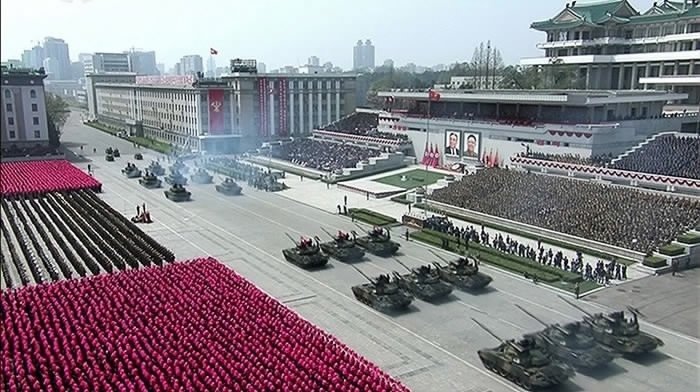
The Democratic People’s Republic of Korea (DPRK) has confirmed that it successfully tested a “Hwasong 15” intercontinental ballistic missile (ICBM) on Wednesday.
A Korean Central News Agency (KCNA) statement, which confirms earlier assessments from the United States and the Republic of Korea (ROK), claims the new type of ICBM "is capable of striking the whole mainland of the US."
It was Pyongyang's first test launch since a missile was fired in mid-September, days after its sixth nuclear test.
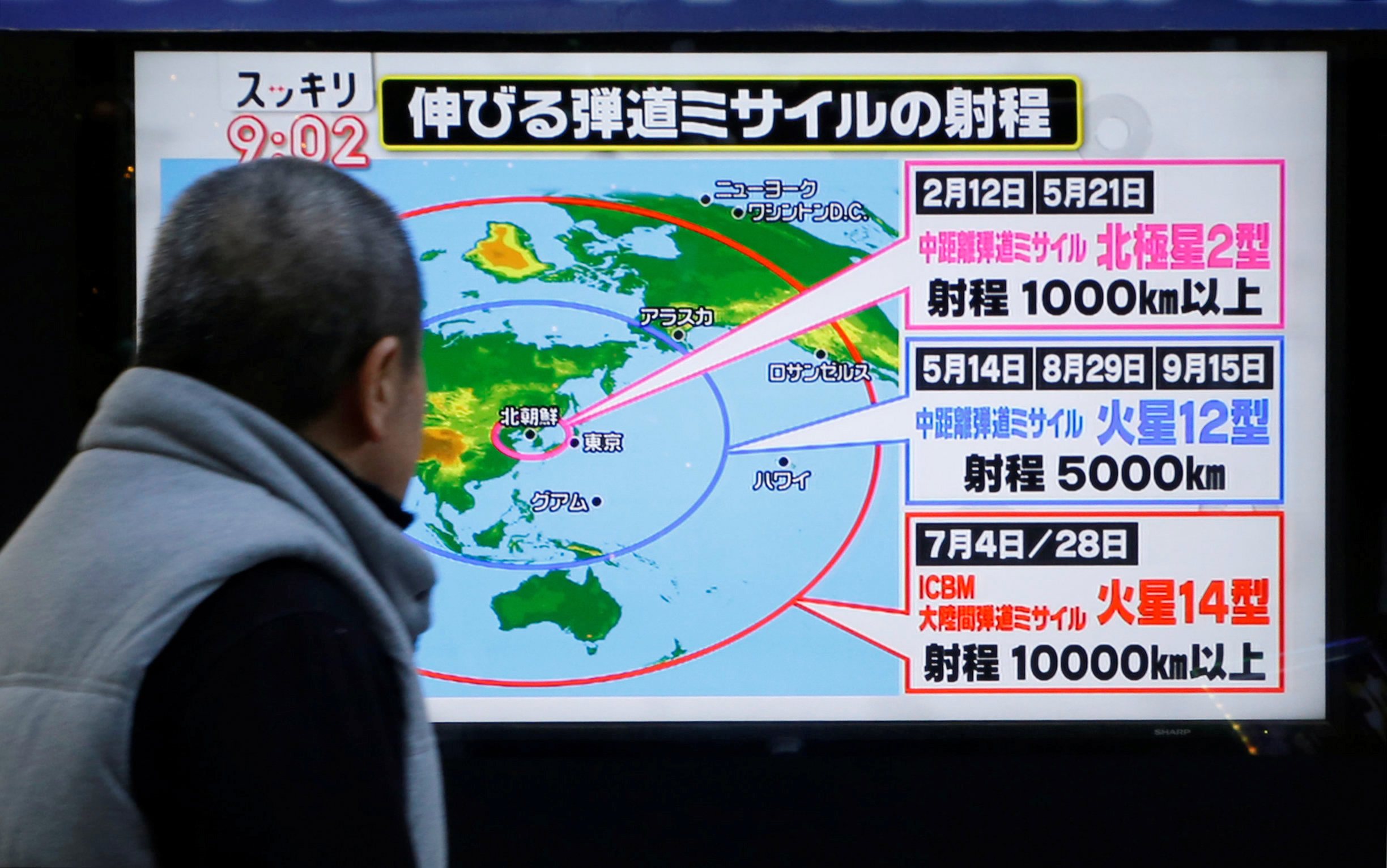
A man looks at a street monitor showing a news report about the DPRK's
missile launch, in Tokyo, Japan, on November 29, 2017. /Reuters Photo
A man looks at a street monitor showing a news report about the DPRK's missile launch, in Tokyo, Japan, on November 29, 2017. /Reuters Photo
The ICBM was launched at 02:48 local time on Wednesday, according to the KCNA statement, and flew to an altitude of 4,475 km and then a distance of 950 km.
It was launched from Sain Ni in the DPRK and flew for 53 minutes before splashing down into the Sea of Japan, said Pentagon spokesman Robert Manning.
The launch has been widely condemned by the international community.
New type of missile
The DPRK said on Wednesday that the successful test of the “Hwasong 15” ICBM "realized great historic cause of completing state nuclear force."
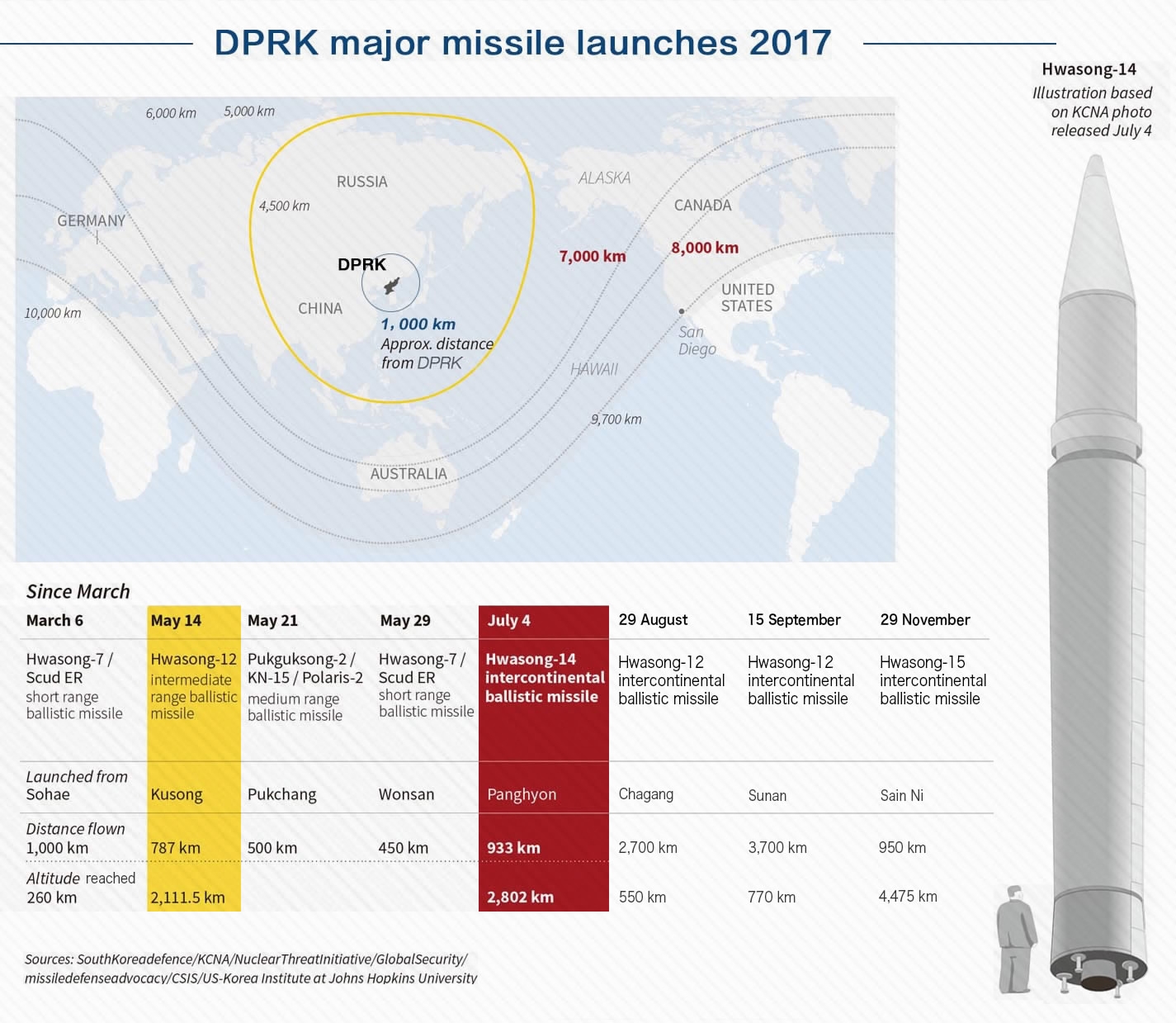
CGTN Photo
CGTN Photo
US, Japanese and ROK officials all agreed the missile was likely an ICBM. It did not pose a threat to the United States, its territories or allies, the Pentagon said.
"It went higher frankly than any previous shot they’ve taken, a research and development effort on their part to continue building ballistic missiles that can threaten everywhere in the world, basically," US Defense Secretary Jim Mattis told reporters at the White House.
Trump, Moon warn of 'grave threat'
US President Donald Trump and his ROK counterpart Moon Jae-in warned that Pyongyang's latest missile launch posed a "grave" global threat.
"Both leaders underscored the grave threat that North Korea (DPRK)'s latest provocation poses not only to the United States and the Republic of Korea, but to the entire world," the White House said in an account of a crisis call between Trump and Moon.
Washington has said repeatedly that all options, including military ones, are on the table in dealing with the DPRK while stressing its desire for a peaceful solution.
"Diplomatic options remain viable and open, for now," US Secretary of State Rex Tillerson said.
China: 'grave concern'
China is "gravely concerned", Foreign Ministry spokesman Geng Shuang said on Wednesday, while calling on all parties to act cautiously in order to preserve regional peace and stability.
"China strongly demands the DPRK abide by the UN Security Council resolutions and refrain from actions that heighten the tension on the Korean Peninsula," Geng told reporters at daily news briefing.
Japan denounces 'violent act'
Japan's Prime Minister Shinzo Abe said the latest DPRK missile launch was a "violent act" that "can never be tolerated" after the ICBM splashed down in its exclusive economic zone.
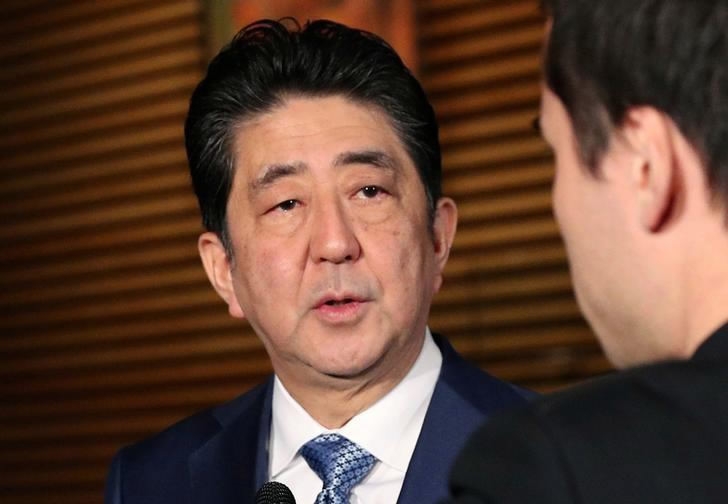
Japan's Prime Minister Shinzo Abe speaks to reporters about DPRK's missile launch, in Tokyo, November 29, 2017. /Reuters Photo
Japan's Prime Minister Shinzo Abe speaks to reporters about DPRK's missile launch, in Tokyo, November 29, 2017. /Reuters Photo
"We will never yield to any provocative act. We will maximize our pressure" on Pyongyang, Abe told reporters.
"The government welcomes the fact that China is taking concrete steps such as an embargo on imports of North Korea's (DPRK) coal, marine products, textile products, among others," Abe told a parliamentary committee.
"Frankly speaking, I feel that China is playing its role" over the UN-agreed sanctions, he added.
Russia: 'provocative act'
The latest test of the ICBM is a provocative act, the Kremlin said on Wednesday, while calling on all sides involved to stay calm to avoid a clash.
"Certainly, this new missile launch is a provocative act, which provokes further growth in tension and which moves us further away from the point where a settlement of the crisis can begin," Kremlin spokesman Dmitry Peskov said on a conference call with reporters.
While condemning the latest test, the Kremlin's Peskov said: "We hope that all the sides involved are able to preserve calm, which is so necessary to avoid the situation on the Korean peninsula sliding towards a worst-case scenario."
Russia and China have proposed a roadmap for defusing the crisis in the region.
On Wednesday, Russia's Foreign Ministry repeated its offer to use the plan, calling on Pyongyang to stop its missile and nuclear tests, while urging the United States and South Korea to abstain from their unprecedentedly large-scale, unscheduled military air exercises announced to be held in early December".
UN council meeting scheduled
The United States, Japan and the ROK requested an emergency UN Security Council meeting to address Pyongyang's missile launch. Reuters reported a meeting was expected later on Wednesday.
UN Secretary-General Antonio Guterres condemned the launch and called for Pyongyang to "desist from taking any further destabilizing steps."
'State sponsor of terror'
Wednesday's launch came after Trump announced last week that the US will designate the DPRK as a state sponsor of terror.
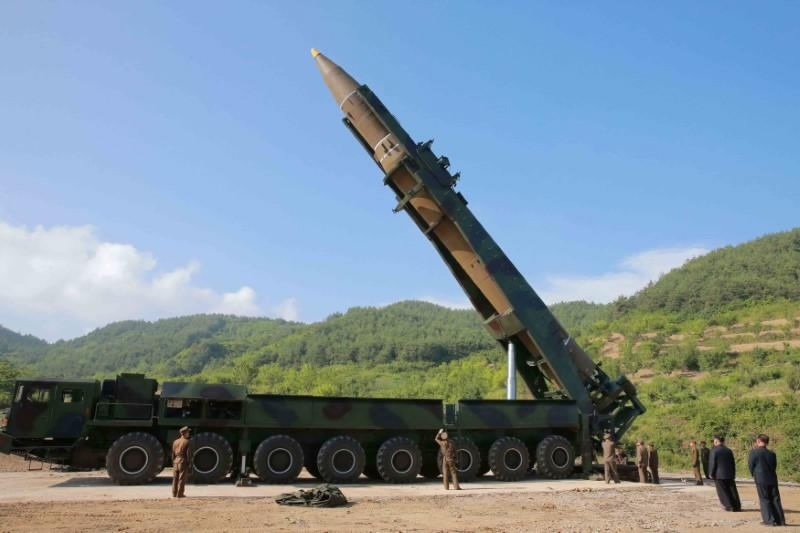
The intercontinental ballistic missile Hwasong-14 is seen in this undated photo released by DPRK's Korean Central News Agency (KCNA) in Pyongyang, July, 4, 2017. /Reuters Photo
The intercontinental ballistic missile Hwasong-14 is seen in this undated photo released by DPRK's Korean Central News Agency (KCNA) in Pyongyang, July, 4, 2017. /Reuters Photo
The DPRK will join Iran, Sudan and Syria on the US list of state sponsors of terror.
"In addition to threatening the world by nuclear devastation, North Korea (DPRK) has repeatedly supported acts of international terrorism including assassinations on foreign soil," Trump said during a cabinet meeting.
The US Treasury Department also expanded its list of DPRK sanctions against 34 additional individuals and companies on November 21.
(With input from agencies)

SITEMAP
Copyright © 2018 CGTN. Beijing ICP prepared NO.16065310-3
Copyright © 2018 CGTN. Beijing ICP prepared NO.16065310-3